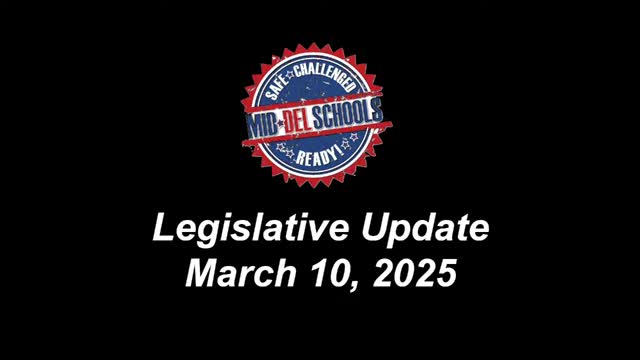Superintendent warns statewide student information system could cost tens of millions; board hears legislative update
Get AI-powered insights, summaries, and transcripts
Subscribe
Summary
Superintendent Doctor Cobb told the Mid-Del Schools Board on March 10 that a proposed statewide student information system could cost tens of millions of dollars to build and would require extensive district changes.
Superintendent Doctor Cobb used his March 10 report to brief the Mid-Del Schools Board on several bills pending in the Oklahoma Legislature and to highlight concerns about a proposed statewide student information system.
Cobb walked the board through bills under consideration and their likely district impacts, singling out House Bill 1522. He said adopting a single statewide student information system would be costly and technically difficult: "transitioning to a statewide system would take an estimated 20 to $40,000,000 to develop... and 15,000,000 annually to support," Cobb said. He also told the board that, depending on the approach, hundreds of districts would need to change vendors: "There are 542 districts in the state. And if they went with one of the existing vendors... at a minimum, 420 districts would have to change vendors." (Transcript language retained where quoted.)
Cobb described other bills and their potential effects: House Bill 1280 would require districts to spend 60% of their budgets on items categorized as instruction; Senate Bill 105 and other measures concern scholarship diversion and accountability processes; House Bill 1727 (passed in the House 71–20) would expand Oklahoma Promise eligibility for children of long-serving teachers; and Senate Bill 758 would restrict virtual-day use and require State Board approval. Cobb said some measures that seek to constrain district discretion — such as requirements on virtual days or changes to board-election timing — could force districts to alter long-standing administrative decisions.
Why it matters: a statewide SIS mandate would affect core operations — enrollment, attendance, graded work and staff records — and could require a large, multi-year migration of data and training. Cobb warned the board that implementation would take years, would require extensive training, could create data loss or glitches at first, and would divert district staff time and funds away from other professional development priorities.
Board reaction and context: board members asked for clarification on which bills had passed committee and which were still under consideration. Cobb said House Bill 1522 had passed committee and that he and his technology staff are watching implementation details closely. He framed his remarks as cautions rather than proposals for immediate board action.
Details from the presentation: Cobb and his technology consortium colleagues provided the 20–40 million development estimate and the $15 million annual support figure. He said the policy discussion about virtual days reflects concerns that local decisions could be shifted to the State Board of Education; Cobb pointed to a recent inclement-weather virtual day in which more than half of students were absent and said that virtual instructional days have produced higher participation and engagement for the district on some past occasions.
Next steps: district staff said they will continue to monitor legislation and return to the board with specific budget impacts or recommended positions if that becomes necessary.
